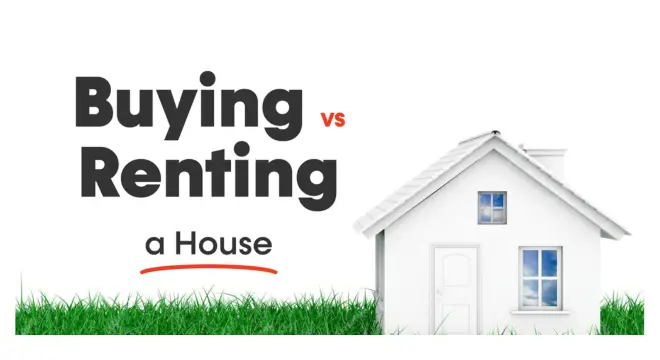How to Choose a Real Estate Agent: 6 Steps Experts Actually Use
Finding the right real estate agent isn’t just about who has the most ads or the biggest smile on a billboard. If you’re buying or selling a home, this person will guide one of the biggest financial decisions of your life. And trust me, not all agents are created equal.
I’ve seen far too many people end up frustrated—not because they didn’t try hard, but because they didn’t know what to look for. A good agent can save you time, money, and stress. A bad one? You might lose out on your dream home—or thousands of dollars.
In this guide, I’ll walk you through six clear, expert-approved steps to help you choose a real estate agent who actually fits your needs—not just someone who talks a good game. No fluff, no jargon. Just real advice based on what works.
Let’s get into it—because this is one decision you don’t want to wing.
1. Know Exactly What You Need Before You Start Looking
Before you even search for an agent, get clear on what you actually need. Are you buying or selling? Is this your first time, or have you done this before? Do you want someone who’s aggressive, or someone who’ll hold your hand through the process?
The clearer you are, the easier it is to find the right fit. For example, if you’re a first-time buyer, you’ll want someone patient and detail-oriented—someone who explains things without making you feel stupid. On the flip side, if you’re selling in a hot market, you might need a sharp negotiator who knows how to create urgency.
Also consider location and price range. A great agent in one neighborhood might be clueless two suburbs over. Look for someone who’s done recent deals in your target area and understands the quirks of local pricing.
Why this matters: Most people skip this step and jump straight to Googling “top agents near me.” That’s a mistake. You can’t find the right person until you define the job.
2. Build a Shortlist Through Real Referrals and Online Research

Don’t rely on paid listings or flashy ads. Start with real-world recommendations. Ask friends, family, or even your mortgage broker—people who’ve recently bought or sold. You’re looking for names that come with stories: “They called me back at 9pm,” or “They priced it right and sold it in 3 days.” That kind of feedback tells you way more than a 5-star rating.
Then, dig into their online presence. Not just their website—look at how they represent properties, what their Google reviews say, and whether they actually engage with clients. Check platforms like Zillow, RateMyAgent, and even local Facebook groups.
And here’s a pro tip: Don’t just look at what’s said in reviews—look for patterns. Do people mention the same strengths or red flags over and over? That’s your signal.
Why this matters: You want a mix of human trust and digital proof. Referrals tell you who to look at. Online research helps you decide if they’re worth your time.
3. Vet Their Track Record, Not Just Their Talk
Once you’ve got a shortlist, it’s time to dig deeper—because anyone can sound great on a website.
Ask for specifics. How many homes have they closed in the last 12 months? What’s their average days-on-market? Do they usually work in your price range? You don’t need fancy charts—just honest numbers that show they’re active and effective.
Also, check for relevant certifications: ABR (Accredited Buyer’s Rep), CRS (Certified Residential Specialist), and membership in professional associations like the National Association of Realtors (NAR). These aren’t just badges—they show commitment to standards and ongoing training. Investopedia breaks these down well.
And if someone tries to represent both buyer and seller in the same deal (aka “dual agency”), that’s a red flag. It creates a serious conflict of interest. SoldNest explains this risk clearly.
Why this matters: Experience alone isn’t enough. You want data, credentials, and transparency—because a great agent will show you why they’re right for the job.
4. Don’t Skip the Reviews—But Learn How to Read Them Right
Online reviews can reveal a lot—but only if you know what to look for.
First, check multiple platforms: Google, Zillow, Facebook, and RateMyAgent. Don’t rely on one. You’re looking for consistency across the board. If someone has glowing reviews on Zillow but crickets elsewhere, that’s a red flag.
Next, go beyond the stars. Read the actual comments. Do people mention specifics—like “She helped me win a bidding war in under 24 hours”? Or are they vague like “Great agent!!” (which could easily be fake)? Repeated mentions of things like poor communication or delays are signs to pause.
Also, be aware of AI-generated reviews. According to American Financing, a growing number of real estate reviews—especially on larger platforms—are possibly written by bots. Look for authentic language and personal anecdotes. If a review sounds like marketing copy, it probably is.
Why this matters: A strong review history builds trust. But only if it’s real, recent, and relevant to your situation. The quality of feedback is way more important than quantity.
5. Interview at Least 3 Agents—And Ask the Questions That Actually Matter

This step is non-negotiable. Don’t just go with the first agent who calls you back or says what you want to hear. Line up 3–4 candidates and have real conversations. The goal isn’t just to compare answers—it’s to get a feel for how they listen and communicate.
Here’s what to ask:
- Are you a buyer’s agent, seller’s agent, or dual?
- What recent sales have you closed in my price range and area?
- Will I be dealing with you directly, or someone on your team?
- What’s your marketing strategy (for sellers)?
- How do you help buyers win competitive offers?
If you’re unsure what else to ask during the meeting, here’s a great list of 12 things you didn’t know you could ask your real estate agent that can help you dig deeper.
You’re not looking for rehearsed scripts—you’re looking for someone who gets you, understands your goals, and explains things without BS.
According to NerdWallet, interviewing agents is one of the most overlooked—but most important—steps in the entire process. It’s where the real differences come out.
And here’s something few people consider: pay attention to how the agent makes you feel. Reddit threads like this one are full of buyers warning about agents who dominate conversations or pressure you too early. Good agents listen more than they talk.
Why this matters: Chemistry, clarity, and communication style can make or break the relationship. This isn’t just a transaction—it’s a working partnership.
6. Compare Offers—and Trust Your Gut Before You Commit
After the interviews, step back and compare what you’ve heard. Don’t just go for whoever charges the lowest commission or sounds the most confident.
Look at the full picture:
- Who had a clear plan?
- Who knew the local market without Googling it?
- Who actually listened instead of pitching?
- What kind of marketing would they use (if you’re selling)?
- Did they overpromise—like guaranteeing a sale price that felt too high?
If you’re selling, don’t go in blind—read these 10 smart questions top home sellers ask their agents to stay ahead.
A lot of people choose the agent who tells them what they want to hear. But that’s risky. SoldNest warns against agents who inflate your home’s value just to get your listing—they’re more likely to reduce it later and blame the market.
Also, be very cautious with dual agents. Even though it’s legal in many states, it’s often not in your best interest. You’re trusting one person to represent both sides of a negotiation—think about that. Joe Manausa, a broker on X, straight-up advises avoiding dual agency altogether.
Why this matters: Choosing the right agent is rarely about one big feature—it’s about the full package: their approach, their integrity, and whether they’re actually aligned with your goals.
Bonus Tips & Pitfalls Most People Only Learn Too Late
Even smart buyers and sellers overlook things that can cost them thousands—or just waste their time. So here are a few honest, often-missed tips you won’t find in most polished agent guides:
Look for agents with enough experience—not too little, not too much
Agents with 2–5 years of focused, recent experience often outperform those with 20+ years in the industry. The veterans may be less adaptable or hands-off, while newer agents often hustle harder and stay more tech-savvy. What matters most is relevant, recent experience—not just how long they’ve held a license.
Test their responsiveness before committing
Reach out after hours or on weekends. How fast do they respond? How helpful is the reply? Responsiveness is one of the clearest signals of how they’ll treat you during the transaction. If they’re slow or vague now, expect worse once you’re under contract.
Avoid getting blinded by agent rankings or platform badges
Many agent directories or home search sites let agents pay for top placement. Just because someone shows up first doesn’t mean they’re the best. Treat those rankings like ads, not endorsements.
Never sign a long-term contract without an exit clause
Make sure you have a clean way out if the agent isn’t working out. A 3–6 month contract with no escape route is a red flag. A good agent won’t pressure you to stay if the relationship isn’t working.
And if your home just isn’t moving, it might be time to hit pause—here are 6 signs you should take your home off the market before it’s too late.
Why this matters: These aren’t just side notes—they’re the kind of real-world tips that protect you from stress, wasted time, or bad deals. Smart buyers and sellers pay attention to the fine print before things go sideways.
Before You Choose—Slow Down and Trust the Process
Here’s the truth most people don’t hear: choosing the right real estate agent isn’t just about finding someone qualified. It’s about finding someone who fits—with your goals, your style, your pace. This is someone who will negotiate for you, guide you, and potentially impact your finances for years. That deserves more than a quick Google search.
So slow down. Ask better questions. Pay attention to the small things—how they speak to you, how quickly they follow up, how transparent they are. The right agent will make you feel seen, not sold.
You don’t need to know everything about real estate. You just need to work with someone who listens, explains clearly, and puts your interest first.
What’s one quality you must have in an agent? Drop it in the comments—or share this guide with someone who’s about to start their own search.
For more real-world guides and smart home advice, visit Build Like New
Disclaimer: This article is for informational purposes only and does not constitute legal, financial, or real estate advice. Always consult a licensed professional before making property-related decisions.


